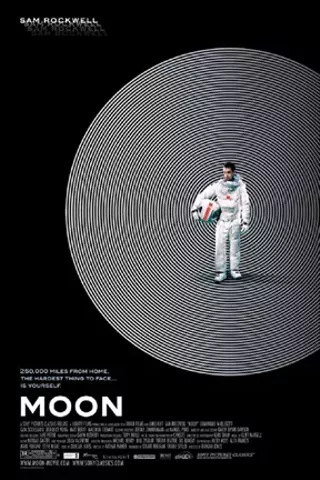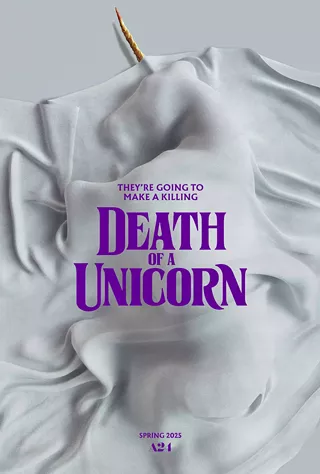The French word for "film director" would translate literally as "realizer," i.e., one who makes something real. That's accurate in many cases: The director takes a script and then turns words on paper into images on a screen, choosing how long to hold a shot, what to point the camera at, what sort of music to play, which parts to cut out—basically deciding (or delegating the decision for) everything you see and hear on screen.
A brilliant script can be ruined by poor directing, and a terrible script can be made more than passable with the proper realization. In Moon, we have an interesting case of great acting and a smart story that's hampered only by some bad decisions coming from the top: cheesy and manipulative music, uninteresting cinematography and a failure to let the ideas speak for themselves.
Still, Moon is a good film, but it could have been a great film in different hands. Sam Rockwell, widely considered one of the finest actors of his generation, gives an almost-solo performance during Moon's 97 minutes, playing Sam Bell, the only inhabitant of a lunar-mining station.
Bell has been on the station for nearly three years, and is scheduled to return to Earth in a couple of weeks. For the entire time he's been there, the lunar communications satellite has been out, so he can't get live feeds from Earth. Instead, he records messages and sends them to his wife, and receives recorded messages in return. But there's an odd sense of disconnect: The messages his wife sends never seem related to the messages he's sent out. Meanwhile, he drifts into the kind of mental disturbance that comes from having nothing to do but watch ancient sitcoms and build model houses.
His only companion is a robot named Gerty (voiced by Kevin Spacey). Gerty has no face, only a tiny screen that displays a shifting emoticon. This is director Duncan Jones' best decision: The emoticon face is so reductive that it adds a strange, distancing effect to the emotional interaction while still conveying sentiment. The station, too, is well-realized: It's filthy, with bits of Sam's personal goods strewn about, and everything looks like it reeks of stale sweat.
Of course, just having Sam sit in the station for an hour and a half wouldn't make for much of a film, so something happens: As Sam grows more distracted, he gets in an accident, driving a small lunar rover into one of the giant mining machines. With no one at the station to rescue him, it looks as though he won't survive, and he falls unconscious.
He wakes up in the station, with no recollection of how he got there, and the story kicks into gear. This is where things get interesting, and though this point happens early in the film, it's the first in a series of important reveals.
If you want to be surprised, both by the unusual early plot twist and the directorial failings of this film, you should stop reading here.
When Sam wakes up, he doesn't remember the crash, but he does see the wrecked lunar rover jammed under the mining machine, so he goes out to investigate. Inside, he finds himself, unconscious in a space suit. Which is a problem, since there should be only one Sam Bell. But if there are two, then that raises a question: How many are there? Are any of them the original Sam Bell? What about Sam's wife? Both Sams remember, love and miss her, and both think that they merely have to finish a contract on the moon, and then they'll be reunited with her.
The film does well with the philosophical material—not only the questions about identity and memory, but also about the technological aspect of slavery. Throughout, Rockwell does a great job, especially when acting against himself. Unfortunately, some of the action is unmotivated; there are strongly emotional scenes that, out of context, look great, but are hard to understand within the film's framework.
I assume this is the fault of director Jones, since he seems to want to ramp up the emotion as cheaply as possible. The worst aspect of this comes in the form of the music: Gloopy, minor-key piano dirges are introduced to let us know that loneliness is sad. Very, very sad. If Jones had instead focused on Rockwell's strong capacity to convey feeling, and used silence or the droning, ambient tones of the working space station, the emotion would have been conveyed without the eye-rolling cheesiness.
Jones also never holds a shot long enough for it to become truly tense. In a film about boredom and detachment, sometimes the greatest effect can come from staying on a subject until the audience is made uncomfortable. Jones seems to fear this, and cuts away before the discomfort sets in. And he's horrible at framing: The exterior shots of the giant mining machines kicking up moon dust look like they were filmed by randomly placing a camera on the set and then just pointing it at the action.
But none of that ruins the film. The ideas, the interiors, the robot's emoticon face and Rockwell's performance all make it worthwhile. It's just that, in more capable hands, these very same elements could have been used to create a great movie instead of a merely decent one.











